INTERVIEW | There was a time when the Indian music scene in Malaysia began and ended with whatever was churned out by the music industry in India.
As local acts experimented with rock, metal, and mainstream pop styles, they found themselves accepted by a niche audience.
However, in recent years, the rap and hip-hop music scene has started to thrive in Southeast Asia. From only attracting a small following or being relegated to the underground scene, rap has now become mainstream.
The Tamil rap scene in Malaysia and Singapore also began to thrive and even made inroads into the Tamil film industry.
Rap historically has been associated with the disenfranchised African American community. However, that has evolved and now, rap is essentially a style employed by different cultures as a form of lyrical expression.
Malaysiakini spoke to some of the biggest names in Malaysian Tamil rap who shared their insight into the music scene here - and to where it is heading after pandemic-related lockdowns.
Man of many passions
With roles such as professional emcee, recording artiste, TV personality, motivational speaker and wedding planner, one wonders how Saint TFC finds the time to also be a mentor for young up-and-coming rappers on the competition show ‘Rap Porkalam’.
“It has been pretty good, very busy,” the 34-year-old said, explaining the delicate balance of his many careers and passions.
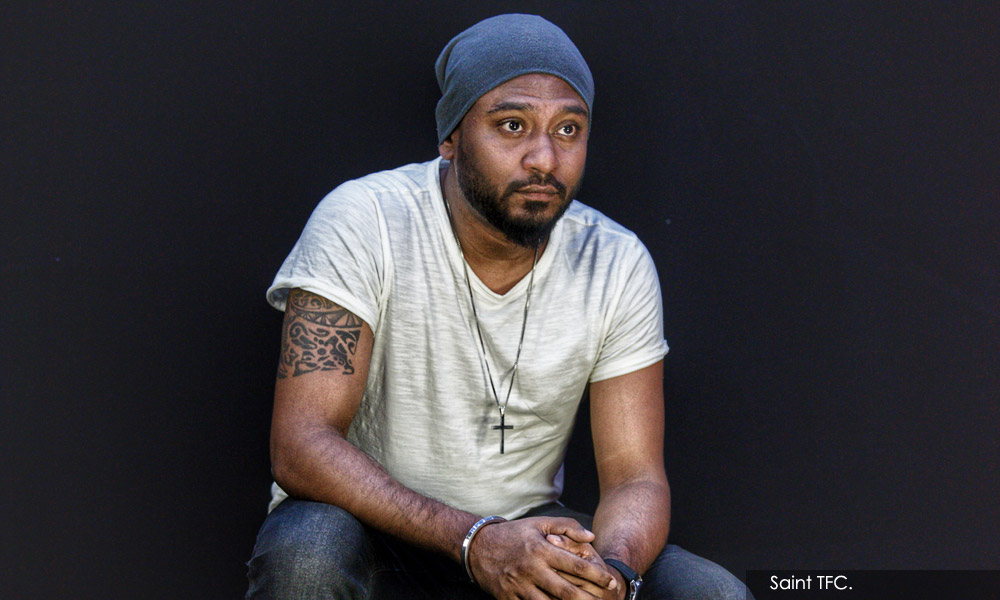
On Mondays to Fridays, after dropping his wife off at work, Saint will be in his studio, talking to clients, sending out quotations, or working on songs. On weekends, he is busy with events where he meets and enjoys conversing with many different people.
So how did a man busy with his own business become a rap star?
“Honestly speaking, I come from a family of people who enjoy singing and I am the only one who cannot sing. The only option I had was to do rap,” Saint, whose real name is Samson Thomas, explained.
A cousin introduced him to hip-hop music by artistes such as Nas, Tupac Shakur, and Dr Alban. He was hooked and started listening to more rap artists.
“I enjoyed how rap music could be so honest and that it came from a very real place.”
His biggest hits include the trilingual I’ll Not Forget (Aku Tak Akan Lupa/Marakka Maten), which is a song about anti-racism.
“Initially, I started out rapping in English about 12 years ago and then I did Tamil music. I had 43 songs that played on local and international radio stations.”
Working on music
In September 2021, Saint released “Bukan Sekadar Hikayat” (Not Just a Tale), which featured lyrics by Singapore death row inmate P Pannir Selvam.
The song was about the sacrifices made by those who laboured to create what was to become Malaysia.
However, the movement control order (MCO) imposed due to Covid-19 affected him artistically.
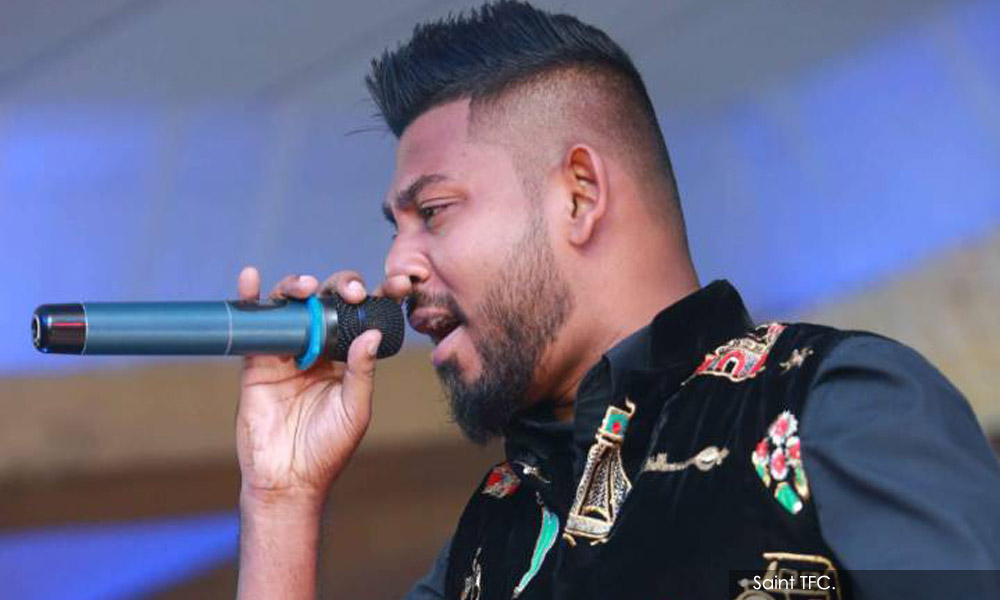
“It was one-and-a-half years of hell for me. It was not due to economic reasons. I could not go to the studio, which was like a therapy session for me, where I could just let everything out.
“The fact that I could not do that for some time affected me mentally.
“Now that I can go back into my studio and start working again is amazing. In fact, I am working on a new song called ‘Kita Jaga Kita’ (We Take Care of Ourselves) that features English, Tamil and Bahasa Malaysia lyrics.”
Besides that, Saint is working on two songs with his singer wife Mathana Anjali.
He has previously composed songs for productions in India - two Malayalam movies (Ranam and Kalki, both in 2018) and a Tamil movie (Mafia, 2019).
Lyrics being political, personal
Asked if he is political, he said: “I guess I just want to be someone who can state how I feel. It is all perception. If some people think I am political, then I am political. Some people think I am purposely trying to instigate people.
“I think the difference between someone who makes music and someone who is an artiste is that the artiste puts himself or herself into his or her music. And I have decided to put myself into my music.
“If you want to know about me, just listen to all the words that I am rapping. That is exactly who I am.”
Speaking about Tamil rap in Malaysia, Saint said: ”First of all, the Western influence of how swag (stylish confidence) and how cool it is.
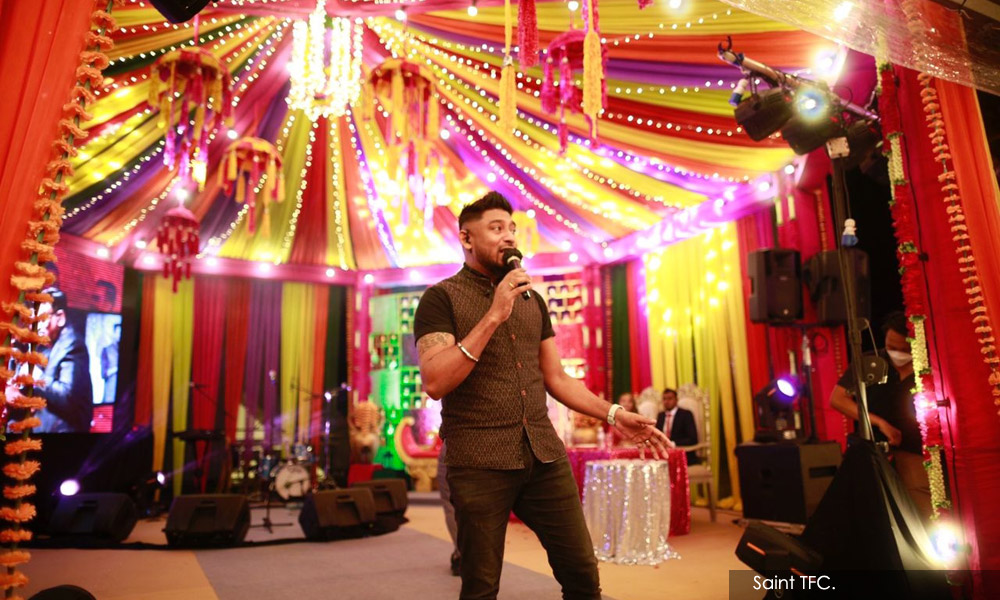
“Initially, our own style of music was samba rock. It was not widely accepted. The only Western influence it had was a bit of heavy metal.
“It was Yogi B who found common ground on how to bring cinema songs and rap together. His (album) Vallavan (2006) found the common ground, which is why it was accepted widely.“
While rap’s origins were influenced by oppression, it later evolved to become more commercial. Saint said that in Malaysia, it was the commercial aspect that was first embraced.
“But now I won’t say they are becoming more political, but they are becoming more personal with their lyrics,“ he clarified.
Future of Tamil rap
He said he has seen many young artistes putting up rap songs on social media and sharing lyrics that are deeply personal.
“As someone who enjoys rapping, I love it.”
He sees Tamil rap branching out into two different directions in the near future.
“The first is having credible and personal lyricists. Lyricists write about things that most people are afraid to talk about. I have met a few young lyricists who are like that.
“The second is people who are doing it for clout, the likes. They are rapping about Lamborghinis and Ferraris. Either way, one can't survive without the other.”
Mentoring new rappers in ‘Rap Poorkalam’ has reignited Saint’s love for rap again.
Describing one performer who moved the judges, Saint said: “He rapped about his personal relationship. He even cried on stage. We felt it. It was the greatest thing I have ever seen on stage.”
Changing the ecosystem
Balan Kashmir was rapping in English but around 2007, when Tamil rap was in its infancy in Malaysia, he saw its potential.
“There was a fan base (in Tamil rap). If you did hip-hop in English they would compare you to Jay-Z or Kanye West.
"If you did Tamil hip-hop, there was no one they could compare you with. Malaysian Tamil rappers were doing a much better job of it than those who were in India at that time.
“That is how I got into Tamil hip-hop,” said the 39-year-old whose full name is Kokula Balan Muniapan.
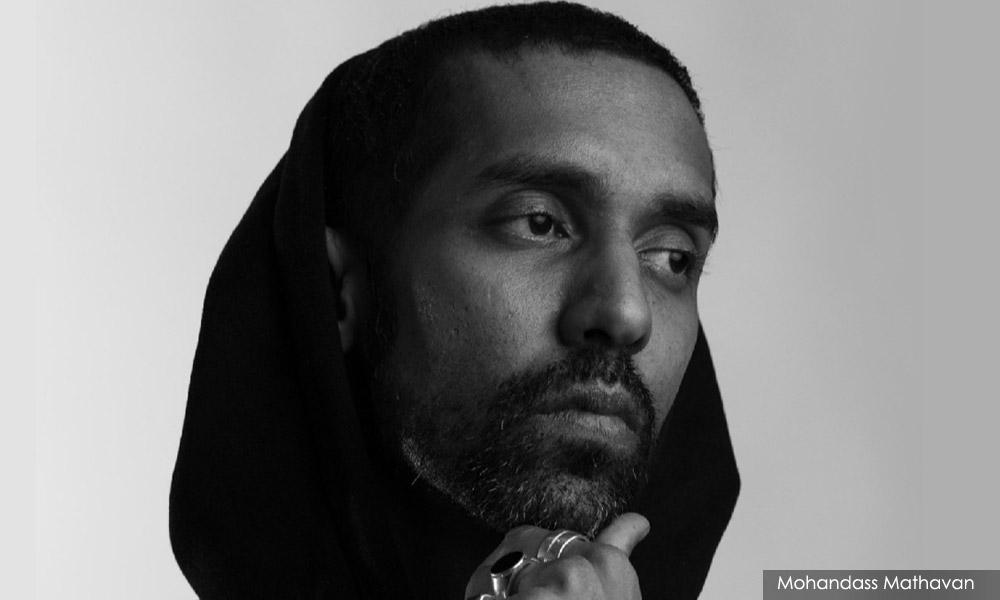
Balan cited Will Smith and Poetic Ammo as among his early influences.
“At a very young age, I was watching Fresh Prince of Bel-Air (starring Smith) and I think that is where it all started. In Malaysia, it was Poetic Ammo and Too Phat.“
One of his earliest hits was ”Uppu Mutteh” (2016) which garnered him an instant fan base.
He described Tamil rap as having its own identity.
“I think people wanted originality at that time. People were tired of going to all these dewan (concert halls) with their families and sitting there watching 10 to 15 singers come on stage singing songs from the Indian film industry.
“I think people were getting immune to seeing the same thing again and again.
“So when Tamil rap started in the late 1990s and early 2000, it was something fresh. People were saying these are our boys and they are doing something different. Let’s give them a chance.”
Balan described Boomerangx’s “Cari Makan” (Making Money) as the first Tamil rap song that had a real local flavour to it.
“It was about making money. Don’t fight, don’t do the things that Indian people have been known to do, make something out of your life.
“People of all ages resonated with it. It sounded like a Tamil movie song, it was also hip-hop, and it was the right blend. Those are the kind of records that open doors for others who make a living out of rap, like myself.”
Pursuing a dream
Balan left his mass communication degree course halfway and gave up on his dream of becoming a journalist.
“I was doing internships at record companies such as Kartel Records. My mentor was Joe Flizzow. He was the one who told me to get into the Tamil rap scene because it was opening up at that time.
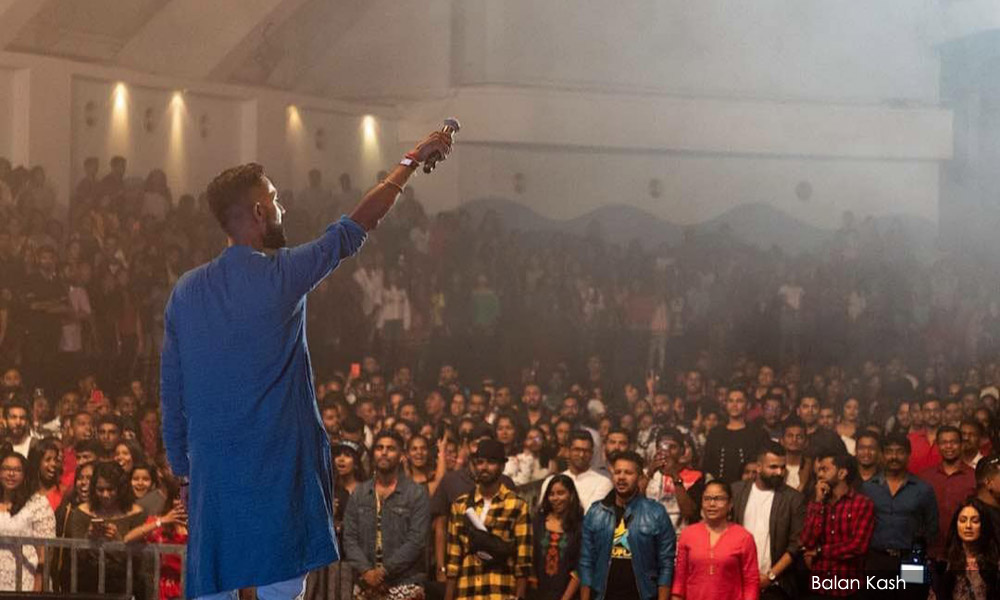
“I did that in 2010 and so far I have not turned back. There were times that I wanted to take up a normal job because I had to take care of my family. I am one of those guys who does this full-time, pursuing my dream, and still taking care of my family.”
He has a new six-track album called “Terima Kasih” (Thank You) that came out on July 9 and one of the tracks has Balan rapping in Bahasa Malaysia.
“I wanted people to know that just because I am a Tamil boy, it was not a sin to perform a song in Bahasa Malaysia. It is my national language and the market is much bigger. So why not?”
He is planning shows in major cities around the country.
“I do see the Tamil rap scene evolving because the sound is changing. The crowds are much younger and their parents accept their kids doing it. I would say in five years there will be a stronger ecosystem creating more jobs.
“Let's say that today, an artiste like me could attract a crowd of 500. In five years, an artist like me could fill up a 2,000 to the 3,000-seater venue.
“It will happen but will take some time. Knowing Malaysians, they would rather support Tamil movie stars like Ajith Kumar and Vijay. We need to change that ecosystem.”
The blue-collar rapper
Arunboii was born in Johor Bahru but moved to Klang, Selangor, with his family when he was a child.
The 28-year-old’s music reflects his blue-collar roots and his debut single “Enge Port” is about the struggles of working-class Indians, which found favour with many people who could relate to what he was rapping about.
Even the accompanying music video, which depicts him as a Pablo Escobar-type figure with a mansion, touched on how blue-collar Indians are discriminated against by society who quickly view them as gangsters and criminals when, in reality, they are just hard-working people trying to make ends meet.
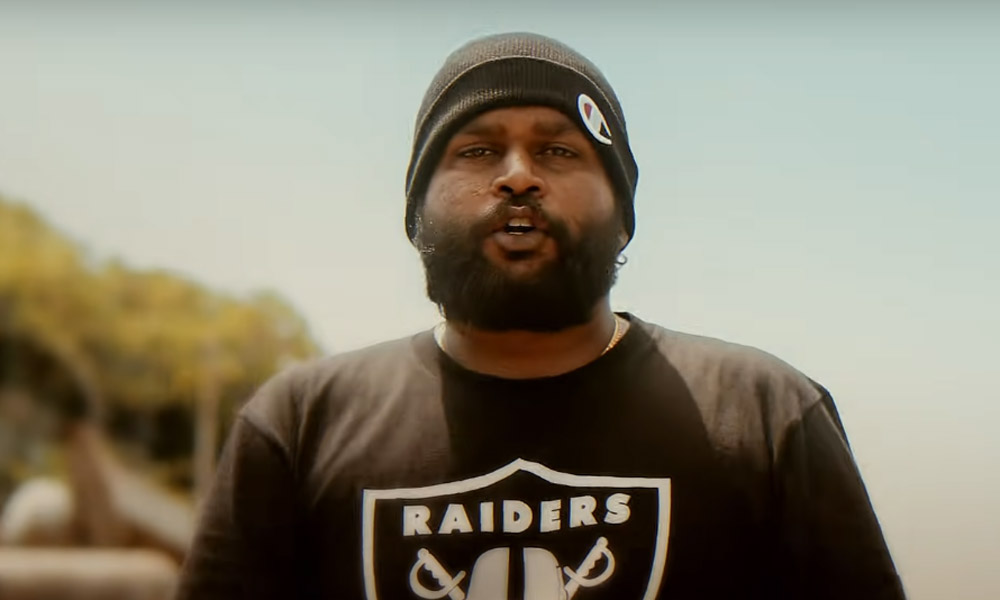
During the interview with Malaysiakini, this artiste, whose real name is Arun Syarma, said he has been a fan of Eminem since the age of 13 and is influenced by him. He has been rapping since his early 20s.
“I find rapping as a way to express myself. I write about jobs commonly done by the Indian community, such as car-washing, which is something I have experience of. I also write about my hometown, friendship, love and trust,“ said Arunboii who works in a logistics company.
“I believe a rap song should have a soul and an interesting story which the listener should be able to understand when they hear it. Videos help to visualise the story and make the song’s story clearer,” he explained.
He claims to be apolitical and does not get involved in political issues. Nor does he have any ill feelings towards any politician.
Rap is livelier now
The movement control order caused a two-year delay in his rapping career and Arunboii spent time during the pandemic posting videos online.
Live shows are back and he is naturally excited to be able to interact with fans.
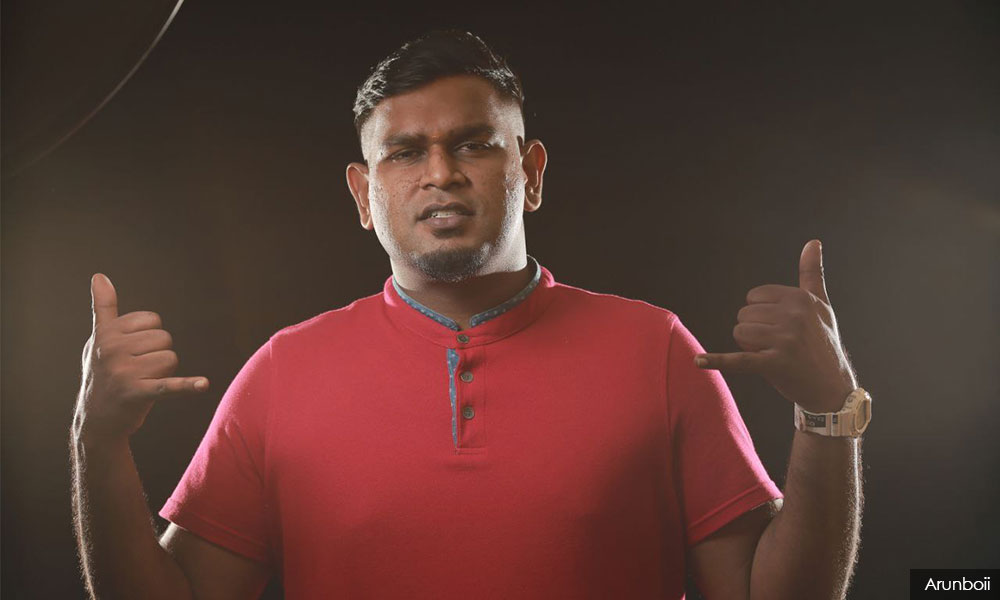
While many musicians delve into personal pain, Arunboii chooses not to share the aspect of his tragic young life, having lost both parents by the time he was 19.
“I don’t rap about the hardships in my life. In fact, rapping allows me to escape my problems.”
Arunboii is working on a five-track album which he plans to release by the end of the year.
He said rap is livelier now and is popular among people between 10 and 40. He also said the quality of rap has increased.
While breaking into the Tamil market in India is an ultimate goal, Arunboii is concentrating on the Malaysian market and also has his eyes on Singapore. - Mkini



No comments:
Post a Comment
Note: Only a member of this blog may post a comment.